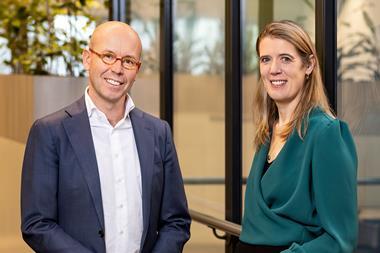UK – The Church Commissioners' assets committee will be asked to investigate how the Commissioner's £5.5bn (€6.4m) endowment fund came to invest – albeit indirectly – in payday loan company Wonga, and to review its £75,000 holding.
The investment exists via a shareholding in US-based Accel Partners, a global private equity firm specialising in technology companies, which led a fundraising round for the online lender in 2009.
Payday lenders have received a mounting barrage of criticism because of the high rates of interest they charge on short-term loans, and because they are seen as exploiting lower-paid and vulnerable borrowers.
The revelation, resulting from a Financial Times investigation, is highly embarrassing for the Commissioners as it follows a recent public vow by Justin Welby, the Archbishop of Canterbury – head of the Church of England – to "compete [Wonga] out of existence".
The Church has announced its intention to offer credit unions access to church premises and its own financial expertise to help strengthen the credit union movement, which provides low-cost loans to local communities.
Earlier this month, Archbishop Welby launched a church credit union for clergy and staff of the Churches of England and Scotland.
In a BBC interview today, Archbishop Welby said the investment in Wonga "shouldn't have happened" but that it did not alter the Church's commitment to backing the credit union movement.
The Church's Ethical Investment Advisory Group, which shapes investment policy, recommends against investment in companies that make more than 25% from high interest rate lending.
A spokesperson at Lambeth Palace, the Archbishop's official residence, said the holding in the relevant pooled investment vehicle would be reviewed.
She added that the Church Commissioners would also be asked to investigate whether there were any other inconsistencies with investment policies.
The endowment fund exists to help finance the Church of England's activities, and is largely a buffer against future shortfalls.
Part of the fund is set aside to finance pensions arising from pre-1998 service.
The overall return for the 12 months to 31 December 2012 was 9.7%, compared with 8.4% for the WM All Funds Universe.
Archbishop Welby said the 25% level for firms that deal in high interest rate lending was "probably too high", and that he would ask the advisory group to review it.
Andre Spicer, Cass Business School Professor of Organisational Behaviour, said: "Recent research suggests it is almost impossible to identify who owns which shares in the UK economy.
"The result is that diligent seekers of sin-stocks will always be able to find something untoward amongst the Church's investment.
"Getting more involved in the financial markets is likely to bring these complexities into greater public focus."












